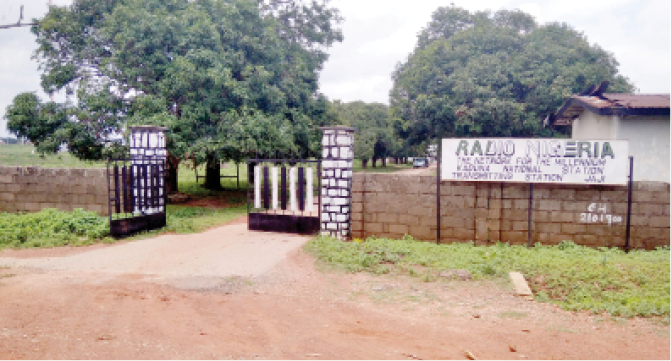Originally established as Radio Kaduna Television (RKT) in 1962 by the Broadcasting Company of Northern Nigeria (BCNN), Radio Nigeria Kaduna is one of the surviving legacies of the northern regional government in broadcasting.
The foundation stone of Radio Nigeria Kaduna was laid by the only Premier of Northern Nigeria, Sir Ahmadu Bello, in 1962. The radio arm quickly captured and captivated the attention of northern Nigeria’s vast radio-listening population. Through its news and current affairs as well as programme content on shortwave, Radio Nigeria Kaduna became a constant companion of millions of people in rural and urban cities across the region’s vast landscape.
The station became a federal government establishment in 1978 when the then Nigeria Broadcasting Corporation fused with the Broadcasting Corporation of Northern Nigeria to form the FRCN. For almost six decades, the station remained a strong medium for mobilisation, galvanisation and conscientisation in northern Nigeria. With its shortwave channels broadcasting in English, Hausa and other languages including Nupe, Fulfulde and Kanuri, the station’s signals reached beyond northern Nigeria, cultivating the largest radio listenership in sub-Saharan Africa.
Fifty-eight years later, many things seem to have changed for northern Nigeria’s premier radio station because of the collapse of the shortwave band; leading to the loss of its millions of listeners. With the station now on medium wave band, its signal is generally poor and barely received outside Kaduna State. The station’s generating power has reduced from 100 kilowatts to about 50 and sometimes even 30 kilowatts.
In 1981, former President Alhaji Shehu Shagari saw to the installation of two transmitters by Nippon Electric Company (NEC) of Tokyo-Japan at Radio Nigeria Kaduna’s transmission station in Jaji. Similar transmitters were mounted in other legacy stations such as Enugu, Ibadan and Lagos. The transmitter in Jaji is the only surviving transmitter of the NEC transmitters installed in the country in 1981. Spare parts are now sourced from the others that are now obsolete in sister legacy stations to keep the one in Jaji alive. A 200 kilowatts JAICA prototype transmitter installed by the Japanese government in 2009 is the only back-up transmitter. The station alternates between the Japanese prototype and the NEC equipment to be on air.
The station’s epileptic air presence had become embarrassing in recent months due to the frequent breakdown of the obsolete equipment. Radio Nigeria Kaduna’s woes are the result of decades of neglect. Although the average life span of the NEC transmitter is 10 years but could be managed for 15 years, the NEC transmitter in Jaji has remained active for nearly 40 years. There is no radio station that uses that transmitter in Nigeria or anywhere in the world today. Out of prolonged frustrations, the of the station protested in 2018 of obsolete equipment. This however failed to change the situation.
Aside of obsolete equipment, the architectural structure at the zonal office of the station at Independence Way in Kaduna is in the worst state of dilapidation; begging for comprehensive repairs. With leaking roofs and decks, buckets are used to trap water from rainfall. Iron boards are also used to cover parts of the transmitter to ensure it doesn’t get wet. When it is raining, the transmitter is sometimes put off air to prevent the equipment from further deterioration. The interior of the building that once housed transmitters for the language service is now a dark shadow of its past.
During the country’s civil war, Radio Nigeria, Kaduna was effectively used to counter secessionists by Biafran Army. Even today, it could be used to fight fake news and dangerous agitations that seek to threaten the unity of Nigeria. The importance of this radio station as a tool for social cohesion and national integration; as a medium for promoting agricultural extension services as well as reaching out to farmers on modern farming techniques; and as an effective instrument of propagating government programmes especially in rural communities cannot be over-emphasised. All this justifies our call on the federal government to act fast and take measures to salvage this premier radio station in the northern part of Nigeria before it permanently goes off air.

 Join Daily Trust WhatsApp Community For Quick Access To News and Happenings Around You.
Join Daily Trust WhatsApp Community For Quick Access To News and Happenings Around You.


